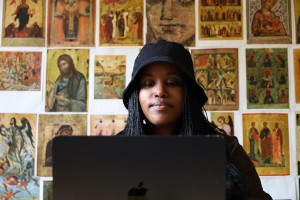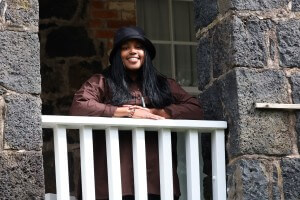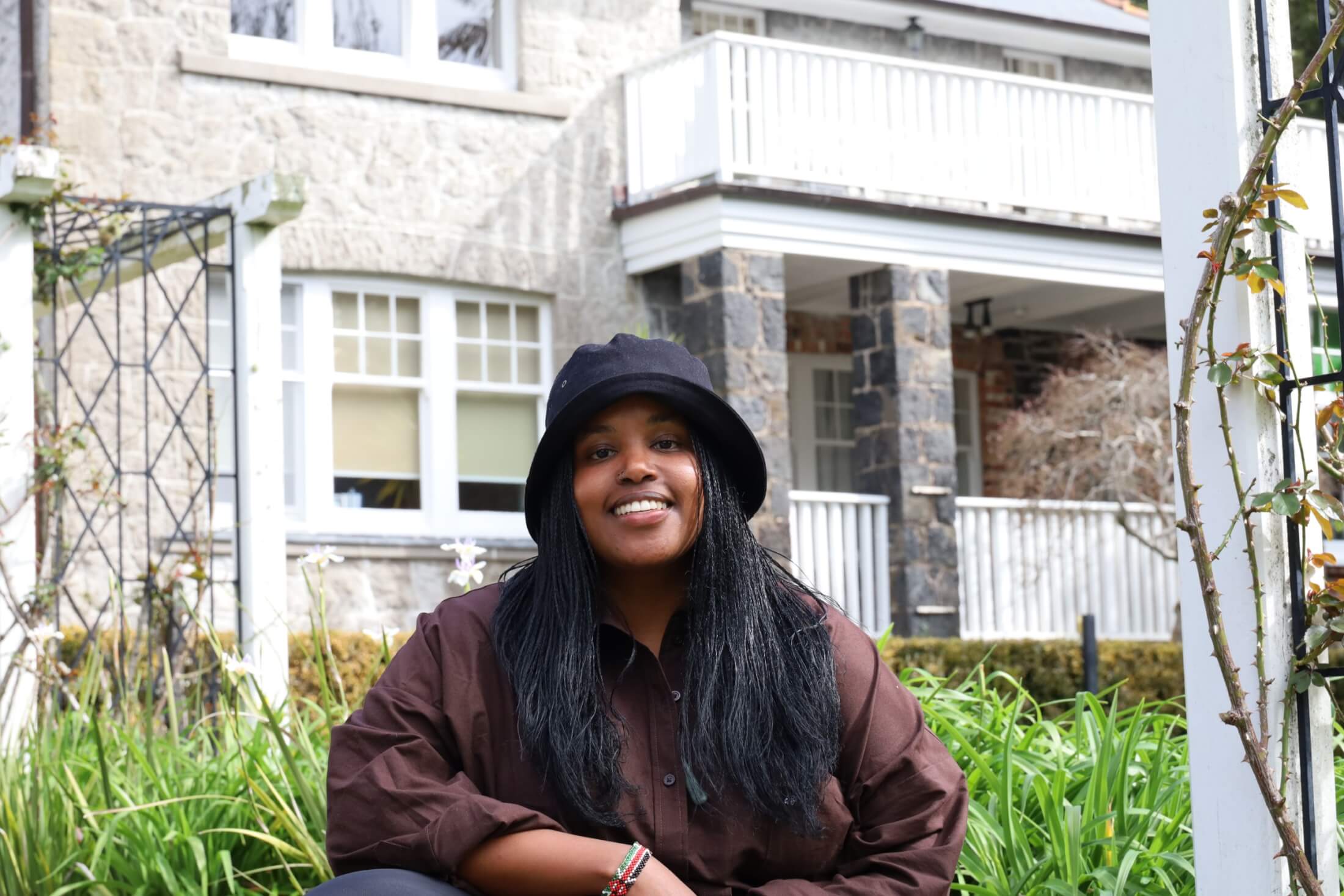In 2016, Wanjiru Muriuki (known to her friends as Ciru) attended her first Anglican service in Aotearoa having moved from Nairobi where she had grown up in the Presbyterian and Pentecostal traditions.
She recognised something intimately familiar in the liturgy. “I remember sitting there and thinking, this feels like home,” she recalled. “It was the first time I realised church could look like the way I prayed.”
She now trains at St John’s Theological College from the Diocese of Christchurch, where she pursues a master’s thesis. The project is a theological inquiry into the disruptive nature of spiritual formation, spiritual maturity and spiritual growth – how we come to mature and grow in faith.

Ciru studying inside her cloister at St John’s Theological College
Much of contemporary discourse, she argues, assumes that growth in faith is linear, a steady ascent toward greater strength, stability, and certainty. “But the Christian life does not move in a straight line,” she said. “It moves in cycles. It looks more like dying and rising again, patterned on Christ.”
This theological conviction is grounded in personal experience. Like many young adults, Ciru’s faith faltered under the weight of existential questions: Does God exist? Why Christianity and not another tradition?
In many ecclesial contexts, such questioning was interpreted as doubt, regression, or even failure. “The church’s message was: hold firm, do not question, pray harder,” she said. “But what if doubt is not the enemy of faith? What if it is the threshold through which God leads us into deeper life?”
Her framework is unapologetically Paschal. The mystery of Christ’s life, death, and resurrection is not merely historical but paradigmatic. “Jesus did not only die and rise for us,” she explained. “He also walked ahead of us, showing the path of discipleship. Death, disruption, and renewal are not anomalies in the spiritual life, they are its very shape.”
For Ciru, this cyclical understanding of spiritual maturity is illuminated through indigenous traditions, which in turn strengthens both. At thirteen, she underwent a rite of passage, an amalgamation of practices drawn from several Nairobi tribal customs that demanded, in her words, “the death of childhood so that adulthood might emerge. You begin to live moving from a girl to a woman.”
It was a process of pain, responsibility, and communal accountability. “No one tried to save you from it,” she recalled. “They supported you through it, so that something new could be born.”

On the balcony of the Tuia Building, General Synod Offices
Immersion in te ao Māori has sharpened this theological lens. “Māori have had to articulate and defend the value of their culture in the face of colonisation,” she said. “That process made me ask the same of my own. And I realised there is wisdom in indigenous Anglicanism for the whole church that could enrich our spiritual lives.
Ciru reflects on how disruption can become a path to spiritual growth. She draws on scripture to explain this unfolding: “Paul blesses the Ephesians and says that you may know the height and width and depth of the love of God, so that you may be filled to the fullness of God.
“Every time we think we’ve grasped it, we discover we haven’t, and we have to let it go and pick something else up. In Matthew, Jesus says, unless a seed falls to the ground and dies, it cannot come to life. Something has to be given for something new to come up.”
